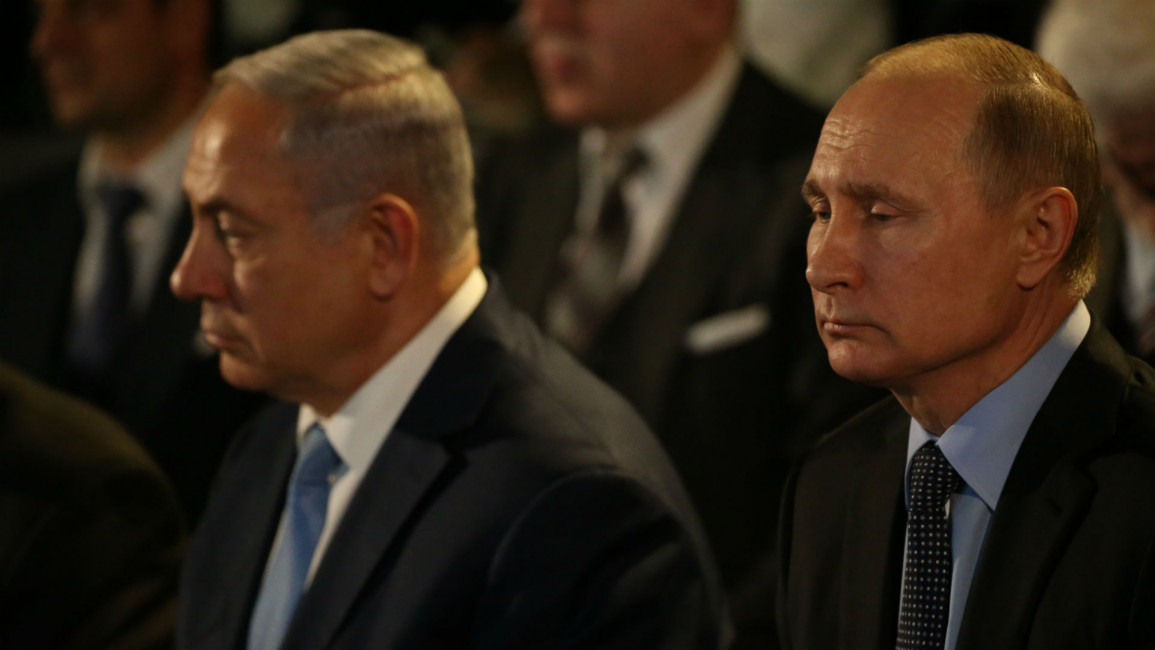Netanyahu to visit Putin amid growing Middle East tensions
Israel's prime minister is set to visit Moscow for talks with Russian President Vladimir Putin amid growing tensions in the Middle East.
Binyamin Netanyahu's office said in a statement on Saturday that they will discuss "regional developments."
It said they will meet on Wednesday at the Kremlin after attending a Victory Day parade marking the anniversary of the Soviet Union's victory over Nazi Germany.
The two leaders have met several times to coordinate activities in Syria, where Russia has placed significant forces.
Israel warns it will not tolerate its arch-enemy Iran establishing a military presence in neighbouring Syria.
Israel has been suspected in a pair of airstrikes on Iranian targets in Syria, though it has not confirmed involvement, and Iran has threatened retaliation.
This comes as Israel pulled out of a race for a seat on the UN Security Council after being locked in a three-way contest with Germany and Belgium for two seats on the powerful body starting in January.
Security Council members are elected by the 193-member General Assembly, and Israel faced an uphill struggle in winning a seat.
In a statement on Friday, Israel's UN mission said that "after consulting with our partners, including our good friends, the State of Israel has decided to postpone its candidacy for a seat on the Security Council".
"It was decided that we will continue to act with our allies to allow for Israel to realise its right for full participation and inclusion in decision-making processes at the UN," the statement said.
While no reason was given for the withdrawal, recent weeks indicated that Israel would lose to Germany and Belgium in the vote on 8 June. European diplomats made clear that they would back fellow European candidates for the two seats.
Arab countries were "doing everything possible to convince as many countries as possible to block the vote on Israel’s bid for a seat at the Security Council" said Palestinian Foreign Minister Riyad al-Maliki last month.
The Security Council is made up of five permanent members - the UK, China, France, Russia and the US - while the 10 other seats are filled by elected members that serve two-year stints.



